Our Nationwide Copyright Infringement Lawyers Explain How Copyright Infringement Damages Are Determined
If you discover someone has infringed on your copyrighted work, you may be eligible to recover losses arising from the infringement. Dortch Lindstrom Livingston Law Group’s experienced nationwide copyright infringement lawyers can help you determine how to best maximize your damages. We encourage you to consult with us to understand your options for holding infringers accountable and recouping losses stemming from the unlawful violation of your copyright.
Determining What Constitutes Copyright Infringement
Copyright infringement law is explained under 17 U.S.C. 504. For statutory damages to be considered, the work must be registered with the U.S. Copyright Office either before the infringement or within three months of publication.
Infringement does not require verbatim, literal copying of the entirety of a copyrighted work. The legal standards focus on whether the copying was "substantial" and included protectable, original material from the work. This is determined using both quantitative and qualitative factors, such as the amount copied relative to the entire work and the artistic or commercial significance of the portions copied.
Even if small amounts were taken from the copyrighted work, infringement can still be found if the underlying substance and material value were misappropriated. For example, copying an iconic musical hook, a key software functionality, or the heart of a story's plot development could all be deemed copyright infringements despite not replicating the full work.
3 Factors That Determine How Damages Are Calculated in Copyright Claims
Under the law, damages in copy infringement cases must fit into one of three categories: actual damages, infringer’s profits, and statutory damages.
1. Actual Damages
Actual damages account for the losses the copyright owner directly suffered because of the infringement and are often determined from lost or reduced sales, the loss of profits from licensing the work, or any other provable financial loss directly due to the infringement.
Understanding whether actual damages are calculated in terms of sales or licensing fees will depend on how the copyright owner has been using the work and a copy infringement lawyer can help you in establishing such causation.
2. Infringer's Profits
Recovering the profits made by the infringing party from their unlawful use of the copyrighted work is a crucial remedy under copyright law. This damages category is specifically designed to prevent unjust enrichment—ensuring that the infringer does not financially gain any benefit from their wrongdoing.
If the profits attained by the infringer through the infringing acts exceed the actual damages suffered by the copyright owner, the owner can recover the infringer's total profit amount. Conversely, if the copyright owner's actual damages outweigh the infringer's profits, the damages award will be based on the owner's losses.
The burden of proving profit numbers rests squarely on the shoulders of the infringer. The copyright owner's only obligation is to present evidence of the infringer's gross revenue resulting from the infringement. Once that threshold is met, the infringer must then establish their specific expenses and deductions to determine the accurate profit figure.
3. Statutory Damages
In most copyright cases, it is difficult to prove actual damages and profits derived from copyright infringement. To accommodate for this, the law allows for a third option known as statutory damages.
Statutory damages are often calculated as a multiple of the price for the use of the copyrighted work. Other factors of statutory damages can include each day the violation occurred and the number of violations.
For most types of infringement, statutory damages can range between $750 to $30,000 per incident. However, the judge will determine the seriousness based on the intentionality of the infringer. A court can order the infringer to pay up to $150,000 per incident, and when a case includes multiple incidents, statutory damages can be even higher. Conversely, if the court determines that the infringement is innocent, the court could award a settlement of only a few hundred dollars.
How Our Experienced Texas Copyright Infringement Lawyers Can Help
With extensive experience enforcing copyright laws, the attorneys at DLL Law strategically pursue every available avenue to maximize damages recovery for clients whose works were infringed. Our firm can:
- Ensure compliance with registration requirements to preserve statutory damages
- Demonstrate the copying was substantial and misappropriated the work's core value
- Calculate provable actual damages from lost sales and licensing fees
- Advocate for maximum statutory damages
Review our case results to learn more about our track record of multi-million dollar awards in copyright infringement cases.

